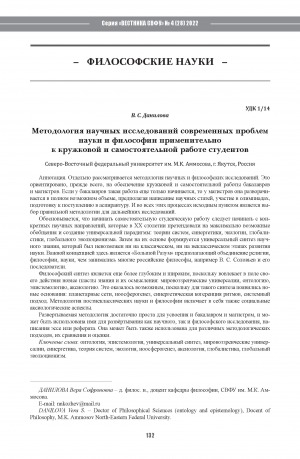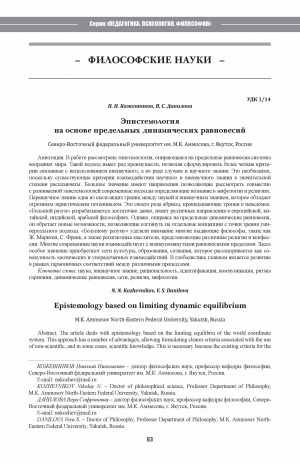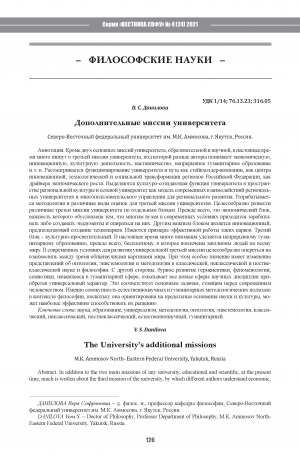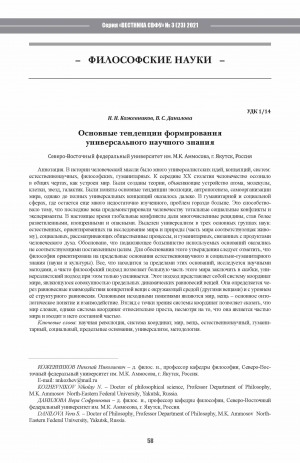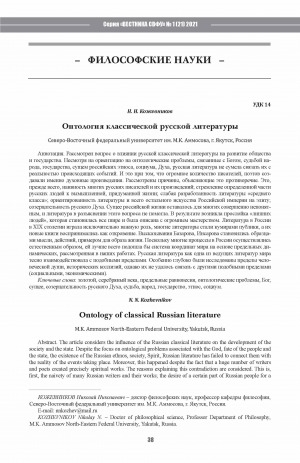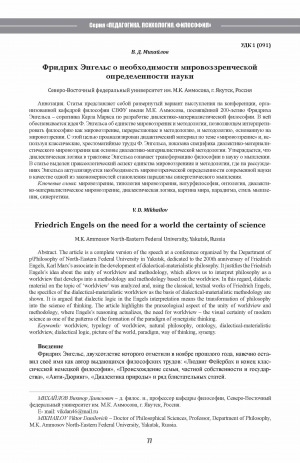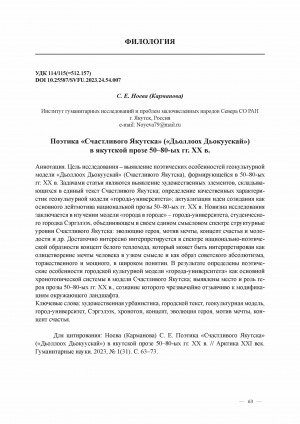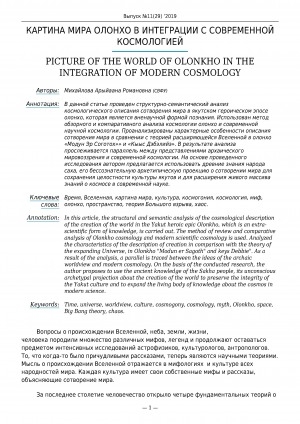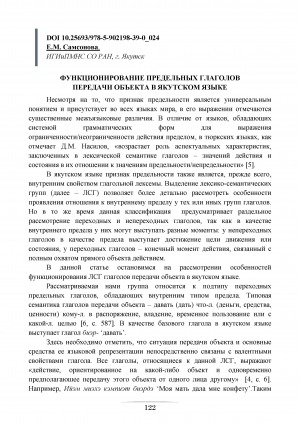Методологическое исследование понятия "сложность" включает в себя уточнение представлений о её элементах, структурах, а также о порядке, хаосе и других связанных с нею понятиях. Этому прояснению также способствуют классификации и диапазоны сложности, а также примеры из специальных наук и их анализ. Проблема заключается в том, что не существует точных и ясных определений этого понятия. Многие подходы представляют собой размытые дискурсы и даже имеется точка зрения, что сама эта область предполагает преимущественно такие подходы. Никто из философов, создателей онтологических и метафизических концепций не рассматривал сложность в качестве философской категории. Однако в рамках сопредельных понятий "целое", "единое", "часть" и т. п. "сложность" исследовалась во многих философских системах, начиная с античности. Основным направлением исследование сложности остаются подходы, разработанные в специальных науках. Развивается методологический подход к исследованию сложности основанный на выявлении её онтологического статуса в контексте процессов самоорганизации мира. Анализируются онтологические свойства "сложности", что позволяет сформировать контуры методологического подхода. В исследовании самоорганизация на первый план выходит взаимодействие вещи с окружающей средой и уровнем структурного равновесия мира. Различные типы самоорганизации оказываются связанными между собой через обратные связи, взаимодействие с окружающей средой, взаимосвязи с начальными условиями, аттракторы. Утверждается, что в качестве философской категории сложность рассматривать нецелесообразно. Все виды сложности на всех уровнях структурной организации мира естественным образом оказываются в сети предельных динамических равновесий. Любое сложное поведение начинается из равновесного (квазиравновесного) состояния и таким же состоянием заканчивается. Сложность внутри подобных ячеек остается за пределами нашего рассмотрения. Развиваемая методология опирается на границы этих ячеек, онтологический статус которых не вызывает сомнений.
The methodological study of the concept of “complexity” includes the clarification of ideas about its elements, structures, as well as about order, chaos and other concepts related to it. This clarification is also facilitated by classifications and ranges of complexity, as well as examples from the special sciences and their analysis. The problem is that there are no precise and clear definitions of this concept. Many approaches are fuzzy discourses, and there is even a point of view that this area itself presupposes predominantly such approaches. None of the philosophers who created ontological and metaphysical concepts considered complexity as a philosophical category. However, within the framework of related concepts “whole”, “single”, “part”, etc. “complexity” has been explored in many philosophical systems since antiquity. The main direction of the study of complexity is the approaches developed in the special sciences. A methodological approach to the study of complexity is being developed, based on the identification of its ontological status in the context of the processes of self-organization of the world. The ontological properties of “complexity” are analyzed, which makes it possible to form the contours of the methodological approach. In the study of self-organization, the interaction of a thing with the environment and the level of structural balance of the world comes to the fore. Various types of self-organization turn out to be interconnected through feedback, interaction with the environment, relationships with initial conditions, and attractors. It is argued that it is inappropriate to consider complexity as a philosophical category. All types of complexity at all levels of the structural organization of the world naturally find themselves in a network of limiting dynamic equilibria. Any complex behavior starts from an equilibrium (quasi-equilibrium) state and ends with the same state. The complexity within such cells is beyond our consideration. The developed methodology is based on the boundaries of these cells, the ontological status of which is beyond doubt.


